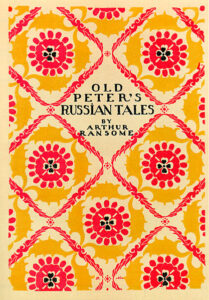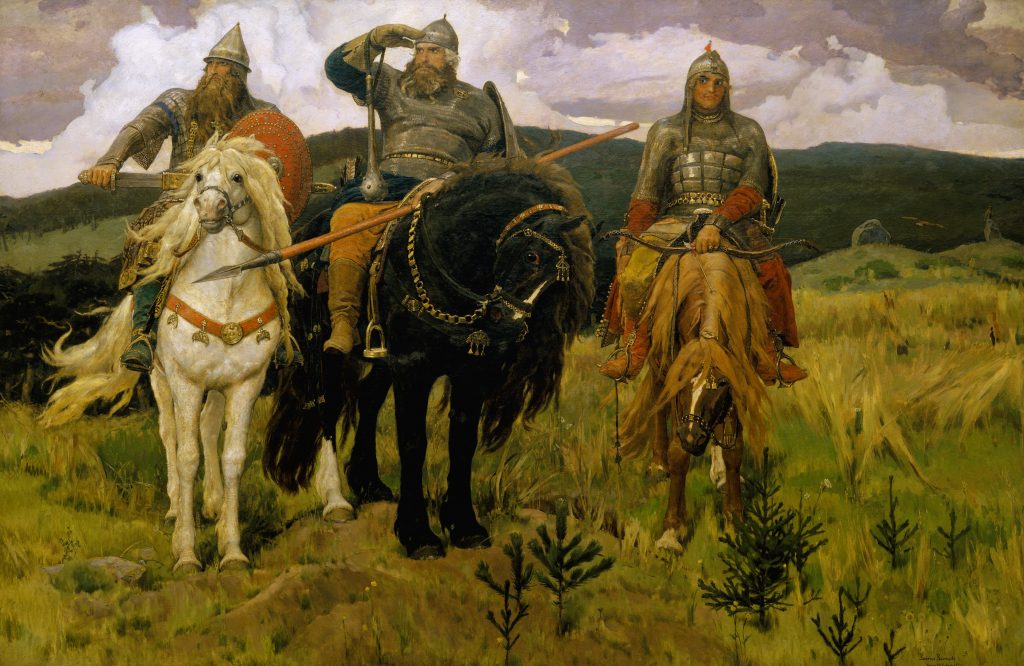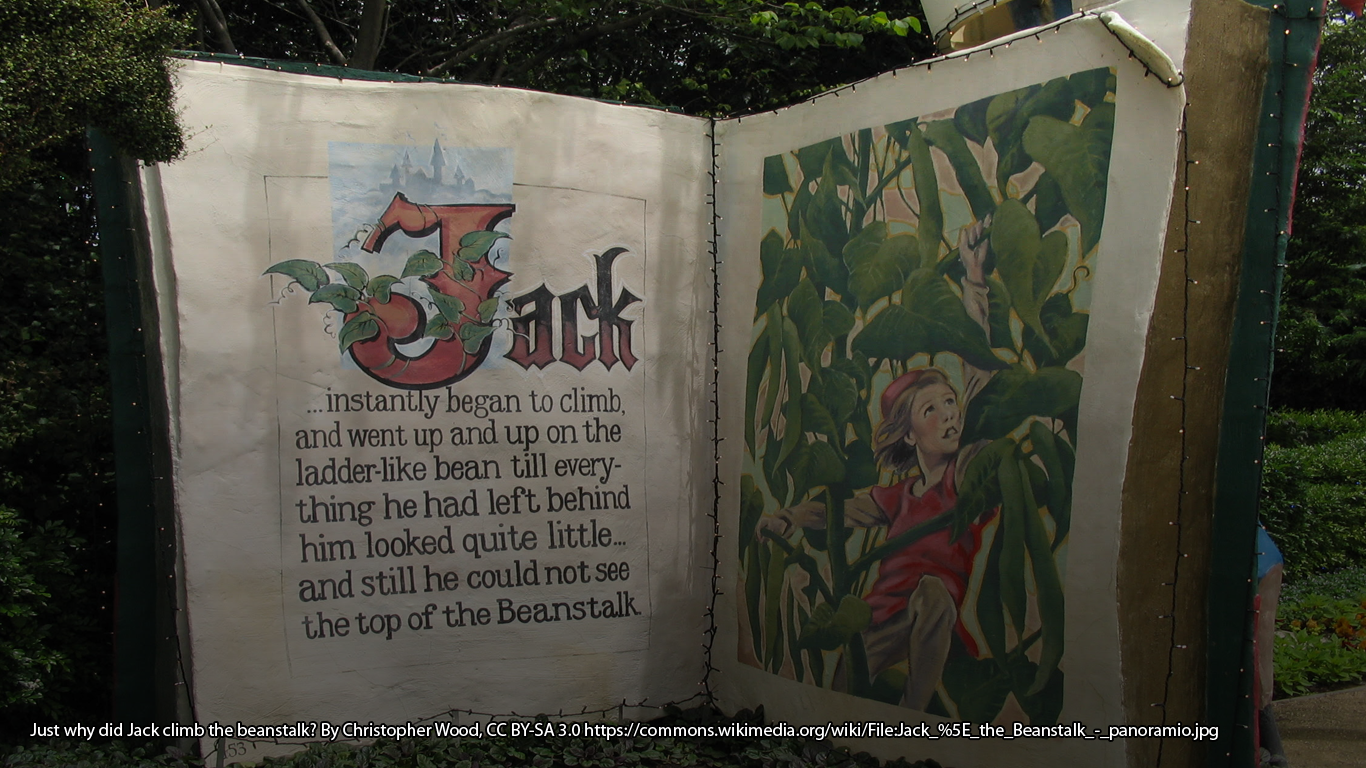The author Arthur Ransome was twenty-nine years old when he travelled to Russia to study its folklore. In the years that followed, this remarkable man became a war correspondent, writer and (some said) spy. He witnessed the Russian Revolution at first hand, and in time he even fell in love with Trotsky’s personal secretary.
Those were difficult years for the world indeed, and in the middle of it all Ransome somehow found time to collect folk tales. Old Peter’s Book of Russian Tales was published in 1916. This collection of twenty-one folk tales is among the favourites on my bookshelf, and although all the stories in it are fine and strong, there is one that really shines for me in the final few pages.

The Firebird, The Horse of Power and the Princess Vasilissa is a hero’s quest with a difference, and it is a tale beloved of many storytellers. Among the first recorded versions of the story is by Alexander Afanasyev from the mid-19th century. It is one of a number of Russian stories featuring the mythical Firebird.
Fire and wisdom
In Slavic folklore, the Firebird burns with flames so bright that it lights up its surroundings – and a single feather from the bird will stay alight with the same magic. Firebirds bring luck, but also doom. They are hunted and coveted, but they always bring more trouble in their wake than anyone had anticipated. In this way, a meeting with the firebird (or its feather) is a sure sign that you are about to start a difficult journey.
In this particular story another Slavic animal of power and wisdom appears: the horse. The bogatirs, or Russian strong men, who rode these horses were blessed with beasts who had ‘broad chests, eyes like fire, and hoofs of iron.’

The Archer’s challenges
The story begins with a young archer riding his horse of power through the forest, but on this morning no birds were singing. There lay the curving feather of the firebird, straight in their path; but the horse of power said, “Leave it alone. If you pick up that feather, you’ll be sorry, and you will learn the meaning of fear.”
What did the archer do? He picked up the feather, of course, and he took it to the Tzar to gain favour. The Tzar loved the feather, but coveted the whole bird. The hunter was sent away with the errand of finding the firebird itself, and the promise of certain death if he failed.
Now the archer thought he knew the meaning of fear. He wept on the mane of his horse, but the horse’s words comforted him a little. “Don’t be frightened yet,” said the horse, “this is not the real trouble.” The horse told him to scatter maize across the forest floor at midnight. With a little stealth the firebird was caught and taken to the Tzar.
The Tzar still wasn’t satisfied. “Fetch me the Princess Vasilissa,” he said. “She lives in the land of Never, where the sun rises from behind the sea. I wish to marry her. And if you fail – you will lose your head.”
The Horse of Power was undaunted. “Don’t be frightened yet,” said the horse, “this is not the real trouble.” He advised the hunter ask for a silver tent with a golden roof, and fine food and drink. Armed with these, the hunter and his horse travelled to the furthest shore, where they waited for the beautiful Princess and made her fall asleep with too much wine; but not before she and the hunter had fallen in love.
He took the Princess back to the Tzar, who declared he would marry her. She was less than impressed, and asked for an impossible task to be set for her would-be lover and betrayer. The hunter was this time ordered to fetch her wedding dress, on pain of death. He would find it under a huge stone at the bottom of the sea.
Still the Horse of Power was not perturbed. “This is not yet the real trouble,” he said, and took the hunter back to the land of Never. There – with the help of a giant lobster – the dress was recovered and taken to the Princess, who looked longingly at the hunter as he handed it to her.
Doing the unthinkable
The wedding preparations were all made and the royal couple were ready in their finery; but the Princess declared she would not take her vows, “until the one who brought me here has done penance – in boiling water.”
The Tzar called for his servants. “Let a cauldron of boiling water be set over the fire.”
“Please, let me just go to the stable and talk to my horse one last time,” begged the terrified hunter.
In the stable, the horse was calm. “Here is the real trouble, at last,” he said. “and the end will be better than you think. Go and throw yourself into the water.”
The hunter had no choice but to go back into the great hall, where the wedding company was waiting. ‘Let me just check the water is hot enough,” said the Princess, and she held her hand over the top of the water. Satisfied, she stepped back. The servants grabbed hold of the hunter, but he wriggled free, ran towards the cauldron, and jumped in.
He sank twice into the boiling, bubbling water. Then he stood up and stepped out of the cauldron, a beautiful, shining young man, the likeness of the young hunter, only younger, clearer and brighter.
“It’s a miracle,” cried the Tzar. “I also would like to return to my youthful vigour.” Before anyone could stop him, the Tzar clambered into the cauldron of boiling water. He was killed instantly.
The young hunter and the Princess married that day, and the hunter became the Tzar. They lived happily for many years and ruled that kingdom in peace and goodwill.
Finding resilience
It often seems that trouble comes along in multiples, one on top of another. This seems to be the case for the global community at the moment, whether it be political calamity, life-threatening disease, a tanking economy or an overheating climate. We hurtle into the next challenge with little time to draw breath or contemplate what we have just been through. Whether as an individual or a whole society, we suffer wound upon wound, great difficulties, and yet still more is asked of us. The real trouble for all living things – that of the climate and ecological emergency – is starting to show itself clearly, and demands urgent action; it will not wait.
It is for these reasons, in part, that I feel drawn towards this story of the Firebird and the Horse of Power right now. If we can follow our intuition and our learning, as the young hunter listened to the horse, we may still have the hope of renewal ahead. After all, would the hunter be prepared for the final challenge, and the transformation it brings, if he had not been through all that had gone before?
I have found inspiration for troubled times in the story of The Firebird, The Horse of Power and the Princess Vasilissa. I hope it brings some of this to you: the courage of the hero, the wisdom of the horse, and the faith to know that there can be renewal from the challenges yet ahead of us.
Lisa’s latest book, Woodland Folk Tales of Britain and Ireland, will be published by the History Press in August 2020!
Once upon a time, most of Britain and Ireland was covered in woodland. Many of the trees have been cleared, but our connection with the wildwood remains. It is a place of danger, adventure and transformation, where anything could happen. Here is a collection of traditional folk tales of oak, ash and thorn, hunting forests and rebellion, timber and triumph in battle, wild ghosts and woodwoses. Lisa Schneidau retells some of the old stories and relates them to the trees and forests in the landscape of our islands today. These stories are essential reading for all those who feel a pull towards the wild in our landscape, and at the edge of our lives.
Buy it here.
References and Further Reading
Afanasyev, Alexander (1916), Magnus, Leonard A. (ed.), Russian Folk Tales.
Ransome, Arthur (1916), Old Peter’s Russian Tales, Frederick A. Stokes, illustrated by Dmitry Mitrohin.






